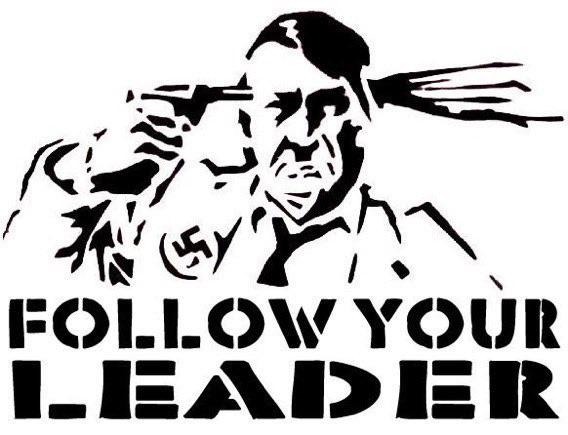When questioning your intentions as arrogant, entitled, immature vs confident, moral right, correctness. Or even questioning if the Duning Kruger effect is at play.
What process do you incorporate to back-up your self-judgement or in identifying your decisions/choices are in-fact “correct” in online discussions and/or personal life with friends/family.
How do you remove “self-doubt”?
Stay intellectually humble. It’s a huge component of wisdom in my observation. Understand you can always make mistakes that can be corrected, and that you have arrived at your opinions through limited information that can always be supplemented, so stay open to both of these possibilities.
You can be confident in your opinions that you arrived upon through spending a lot of effort thinking about them, and you don’t need to have self doubt when challenged on them baselessly. But when someone does point out an error or something you missed, it’s essential you haven’t become closed to accepting it.
Always remember what the basis are for your opinions and how well-founded they really are. For example: how much do you actually know about a thing when you’re relying on something you read in the news? How much do they really know about that thing?
As a check on yourself believing you’ve put a lot of effort into thinking about something, be on the guard for unwarranted confidence. If a professional has put their efforts into something in their field of expertise they’ve spent their whole lives working on, chances are you haven’t thought of something they haven’t in the first five minutes of hearing about their work. That might seem ridiculous, but you see this all the time on Lemmy, where for example commenters seem to think they’ve figured out key errors in scientific papers after reading a single popular science article about an experiment or figured out solutions to incredibly complex problems like fair taxation.
Why would you want to get rid of self doubt? Questioning ones reasons or whether they’re wrong is vital.
I get where you are coming from, that it is a useful thing to have but sometimes self-doubt or insecurities can be debilitating and lead to inaction. It’s should healthy medium like most things in life.
Because your family is toxic and conditioned you from birth to doubt everything you think and feel.
I don’t. There is no absolutely “right” answers, we just need to accept the bad choices and move on. Like anyone else, you will choose the wrong choice eventually, and that’s is fine, just learn from it.
I don’t think you should ever fully remove self doubt. It’s useful so you don’t end up a megalomaniac.
But generally speaking, you do the best you can. I look at the situation, weigh the variables, and make a decision based on the best information I have at the time. If I’m wrong, I’m wrong.
It’s sort of like playing poker. Sometimes you have AA and you lose to someone with 72. Doesn’t necessarily mean you misplayed the hand - sometimes you do your best and still lose. Just lick your bruises and keep moving forward.
Also, I think being able to admit to your mistakes when you are wrong will help a ton.
There’s a line in Nicholas Roeg’s movie Insignificance that has stayed with me for decades now.
There’s an obvious Einstein expy just called “The Professor.” At one point, he’s asked why he’s so cautious about his claims - why he habitually says things like, “I think that…” or “The theory is that…” or “One might argue that…”
His response is, “If I say ‘I know,’ I stop thinking.”
That, IMO, points to the primary answer to your question - don’t try to remove self-doubt. Nourish it. Revel in it. Because it’s the thing that will keep you thinking, and the more you think, the more likely you are to get to actual truth.
I completely agree, and I try to frame my opinions like this, and be open to me being wrong and accepting better information. I don’t do it perfectly 100% of the time, but I do try, especially in a work setting.
One thing to be wary of: some people will call these humble qualifiers “weasel words” and accuse you of lacking conviction. Most likely to happen if you’re having a political discussion with a person who’s convinced themselves that they have it all figured out and/or they mistake bullying for a good argument. I try to disengage with that type of person, but they’re out there in the wild.
Yes - I’ve had many of those asshats over the years insist that I have to “choose a side.”
That’s generally because they can’t actually argue for their position, and the best they can manage is to find fault with a self-serving characterization of a falsely dichotomous opposing position. So they need to be able to assign me to one or the other team, so they know whether they can ignore me or if they need to hurl some emotive rhetoric and fallacies somewhere in my general direction.
And yes - they’re almost never worth engaging with.
And to go all the way back, it could be said that the exact problem is that they have unfounded confidence.
And it’s sort of ironic really, because they’re generally driven by a psychological need to be right, and clinging desperately to one fixed position pretty much guarantees that right is the one thing they will not be.
Imo, you don’t. You must remain humble and open-minded.
It’s always good to have self doubt, it leaves you open to changing your mind. Do what you think you should, but those who realise they are fallible will more easily change their view of things when proven why they should.
You don’t
OP: I’m struggling with mental unwellness how do I deal with this?
Every reply: You know you should feel even more unsure of yourself, you’re literally wrong about everything and you’re also probably really dumb.
I always know I can never be 100% sure of anything. That removes some of the pressure of needing to be right, and ironically some of the uncertainty too. Other than that, well, just gather as much information as possible and go for it… Then don’t look back
Simply keep saying “Fuck it we ball” untill you can ball no more
Find a friend who you can trust to be honest with you to second guess yourself with—preferably someone with a lot of emotional intelligence and self-awareness.
Therapy and anti-depressants
Edit: tbh, I see how the question is framed as a general question too.
I think overall, therapy is a great solution. I wish it was easier to start the process in the states. Surprisingly I haven’t had any experience truly understanding anti-depressants or being close to those that took them and were open talking about them. I wish I knew more about their effects on how they help with self-assurance.
Depends on the person or the medicine. So your results may vary. Basically anti-depressants for me lessen the impact of depression. So when the idea pops into your head that that is negative or self doubting it’s easier to reflect and evaluate if that thought is correct or not. As well it helps with break negativity chains where something goes wrong and a bad mood continues for several events. That is a confidence killer.
By not being sure of myself on anything except subjects about which I have done a great deal of research and reading and/or have considerable personal experience and knowledge. This means that I am not “sure of myself” very much, and when I am, I feel justified in doing so
I doubt literally everything and don’t trust my own judgment. I’ll thank my ex’s affair for part of that.







